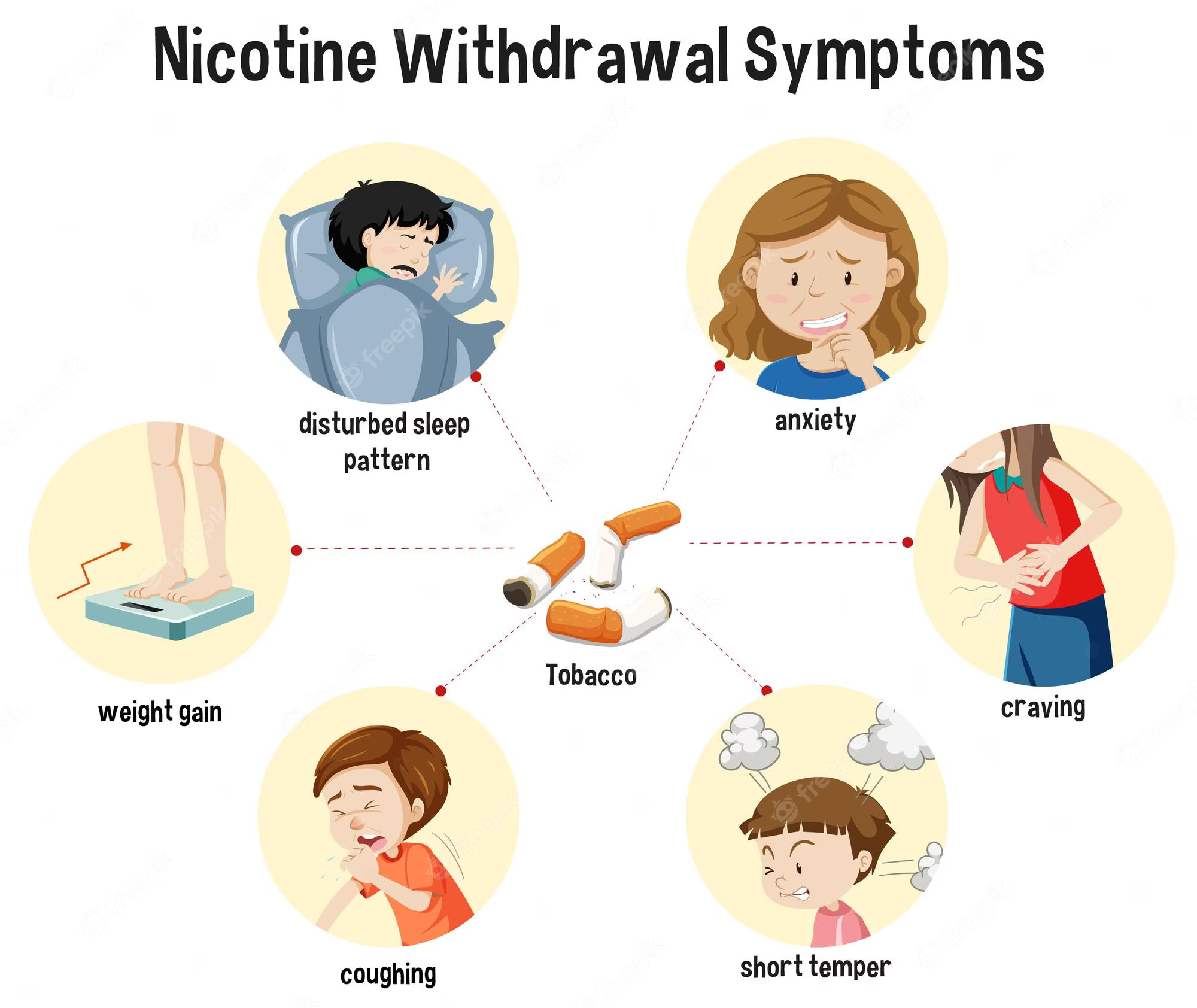
10 Common Symptoms of therapist help Nicotine Withdrawal,
Nicotine addiction is a serious public health issue that affects millions of people worldwide. Smokeless tobacco, cigars, and other tobacco products all contain nicotine, a highly addictive chemical. Dependence on nicotine can be physical Therapist or psychological, making it a complicated issue. Individuals who are addicted to nicotine may experience a range of negative health outcomes, including increased risk of heart disease, stroke, and cancer.
Causes of Nicotine Addiction:
Nicotine addiction is a complex condition that results from a combination of genetic, environmental, and Behavioral factors. Here are some elaborations on the causes of nicotine addiction:
Genetic Factors: Nicotine addiction can run in families, suggesting that genetics may play a role in the development of addiction. Studies have shown that individuals who have a family history of addiction may be more likely to become addicted to nicotine. Genetics can influence the way in which an individual’s brain processes nicotine, making them more susceptible to addiction.
Environmental Factors: Environmental factors such as exposure to second-hand smoke, peer pressure, or social influence can also contribute to the development of nicotine addiction. Individuals who grow up in households where smoking is normalized may be more likely to start smoking themselves. Exposure to smoking in the workplace or social settings can also make it harder for individuals to quit smoking.
Psychological Factors: Psychological factors such as stress, depression, anxiety, or boredom can also contribute to the development of nicotine addiction. can act as a coping mechanism for individuals who are dealing with stress or other negative emotions. This can create a cycle of dependence where individuals continue to use to manage their emotions.
Behavioral Factors: Behavioral factors such as habit or routine can also contribute to the development addiction. For example, individuals who smoke after meals or during breaks may become dependent on to maintain “therapist near me” their routine. This can make it harder for individuals to quit smoking, even if they want to.
Nicotine’s Addictive Properties: Nicotine is highly addictive and can cause changes in the brain that result in dependence. When enters the bloodstream, it activates certain receptors in the brain that release dopamine, a neurotransmitter that produces feelings of pleasure and reward. Over time, the brain may become dependent on to produce these feelings, making it harder for individuals to quit smoking.
Withdrawal Symptoms of Nicotine Addiction:
Nicotine addiction is a complex condition that results in both physical and psychological dependence
Withdrawal symptoms are a relationship counsellor common experience for individuals who are trying to quite smoking or other forms of tobacco use. Here are some elaborations on the withdrawal symptoms of addiction:
Physical Symptoms: Physical symptoms of withdrawal can include headaches, dizziness, fatigue, constipation, and nausea. Individuals may also experience changes in appetite or sleep patterns, and may find it difficult to concentrate.
Psychological Symptoms: Psychological symptoms of withdrawal can include irritability, anxiety, depression, restlessness, and mood swings. Individuals may also experience difficulty in coping with stress or other negative emotions.
Cravings: One of the most common symptoms of is intense cravings for treatment . These cravings can be triggered by environmental cues such as seeing someone else smoking or by emotional cues such as stress or boredom.
Insomnia: withdrawal can also disrupt sleep patterns, resulting in insomnia or difficulty falling asleep or staying asleep.
Increased Appetite: is an appetite suppressant, so when individuals quit smoking, they may experience an increase in appetite or food cravings.
Withdrawal symptoms can be challenging to manage, and can last for several weeks or even months. But, with the aid of online addiction counselling and other support program these symptoms can be controlled.
Methods for Managing Nicotine Withdrawal Symptoms with Online Addiction Counseling:
Online addiction therapy is a beneficial tool for persons managing addiction and withdrawal symptoms. Here are some methods for controlling symptoms of withdrawal that can be utilized in tandem with online addiction counselling:
Behavioral Therapy: Behavioral therapy is a form of counseling that focuses on changing negative patterns of behavior and developing healthier habits. Behavioral therapy can help individuals identify triggers for smoking or tobacco use and develop strategies for managing cravings and avoiding relapse.
Replacement Therapy: To assist control withdrawal symptoms, replacement therapy uses items like gum or patches. Online addiction counseling can provide guidance and support for individuals who are using these products.
Medications: Certain medications can be helpful in managing withdrawal symptoms. Online addiction counseling can provide information and support for individuals who are considering or using these medications.
Mindfulness Techniques: Mindfulness techniques such as meditation, deep breathing, and yoga can be helpful in managing stress and anxiety associated with withdrawal. Online addiction counseling can provide guidance and support for individuals who are interested in using these techniques.
10 Common Symptoms of Nicotine Withdrawal
withdrawal occurs when a person who is addicted to stops using it. Here are 10 common symptoms of withdrawal:
- Cravings: Because the brain has grown acclimated to the presence of cravings are a typical withdrawal symptom.
- Irritability: When quitting smoking, many people get agitated or moody.
- Anxiety: Feelings of anxiety or nervousness can result from quitting smoking.
- Concentration issues: Some people may experience concentration issues when going through withdrawal.
- Restlessness: When quitting smoking, many people experience agitation or restlessness.
- Headaches: Some people who are quitting smoking have headaches as a side effect.
- Increasing hunger or food cravings: Since naturally suppresses appetite, some people may feel this during withdrawal.
- Fatigue: When quitting smoking, many people feel lethargic or exhausted.
- Insomnia: When quitting smoking, some people may have problems falling asleep or have insomnia.
- Depression: When a person stops using they may experience melancholy or depression.
Conclusion:
It might be difficult to recover from addiction because it is a complex disorder. However, users can learn methods for lowering their risk of relapsing and managing their withdrawal symptoms by using online addiction treatment. People can enhance their general health and wellbeing by addressing the root reasons of addiction and forming healthier behavior and coping mechanisms.






